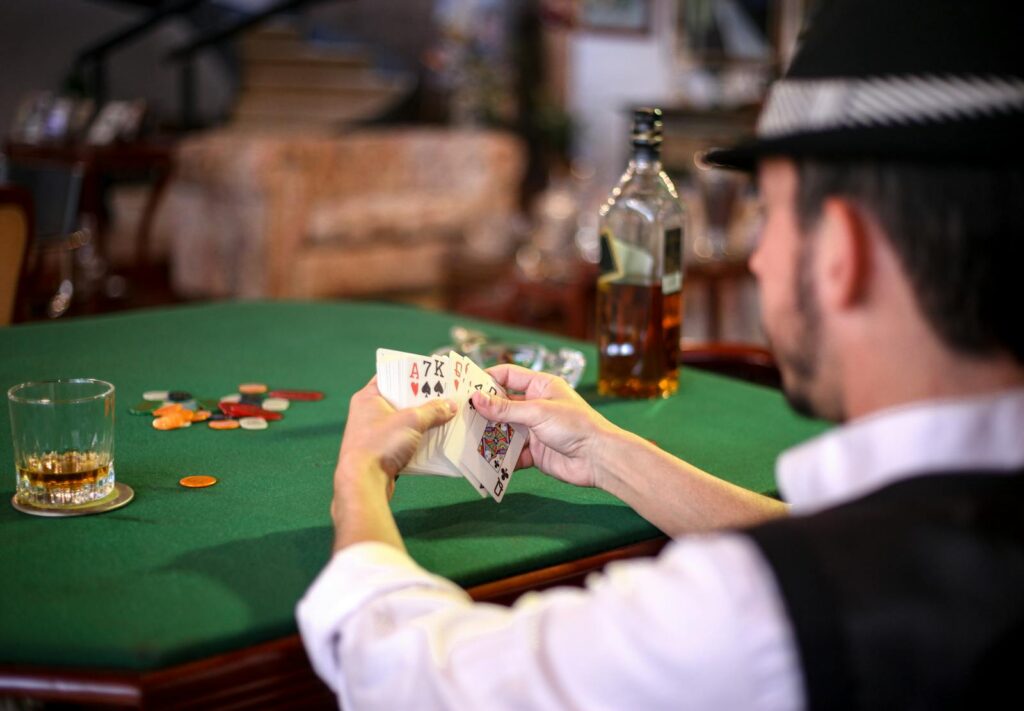Live Poker Masterclass
Live poker is the heart and soul of the poker world. While online poker offers speed and convenience, live poker provides depth, texture, psychology, and raw human energy that cannot be replicated. In this 6000+ word masterclass, you’ll discover everything you need to dominate the live poker arena—from walking into your first casino room to mastering the mental warfare and high-stakes strategy that separates champions from amateurs.
Whether you’re a home game veteran or an online grinder stepping into a real card room, this guide is your ultimate companion.
Understanding the Foundation of Live Poker
Before diving into tactics and psychology, you must understand what makes live poker a unique beast. At its core, the game follows the same hand rankings and betting rounds as online poker, but the environment, pace, and human dynamics change everything.
Key Differences Between Live and Online Poker:
Pace: Expect 20–30 hands per hour in live games, compared to 60–100+ online.
Physical Presence: You’re seated among other players. Body language, tone, posture, and facial expressions become vital information sources.
Stack Sizes: Live poker often features deeper stacks. Bankroll management becomes even more important.
No Digital Assistance: No tracking software, HUDs, or note-taking tools—you rely on memory and attention.
Tells and Timing: Live tells, betting cadence, and player behavior often reveal more than the cards.
Types of Live Poker Games:
Cash Games: Most common in casinos; usually no-limit Texas Hold’em $1/$2 or $2/$5.
Tournaments: Vary in structure—local casino dailies to international series like WSOP.
Home Games: Less structured but socially driven; often include wild cards or rule variations.
Getting comfortable with chip handling, buy-ins, posting blinds manually, and verbal declarations is key to navigating your first few sessions.
Advanced Table Etiquette and Player Interaction
Live poker is not just about the cards—it’s about people. Your image, etiquette, and table presence impact your profitability.
Table Etiquette Essentials:
Protect Your Hand: Use a card protector or hand to cover hole cards.
Announce Bets Clearly: Saying “raise to 50” is clearer than silently tossing chips.
Avoid String Bets: Declare your intent verbally before pushing chips forward.
Respect the Dealer and Staff: They’re your allies. Courtesy matters.
Act in Turn: Acting early disrupts fairness and may expose strategy.
Don’t Slow Roll: If you have the winning hand, reveal it promptly.
Building a Positive Table Image:
Your table image is how others perceive your play style. Use it to your advantage:
Tight Image: Fold often early, then steal later when respected.
Friendly Persona: Talk casually, smile, and appear recreational—then strike hard.
Silent and Mysterious: Works best in aggressive games; lets actions speak louder.
Remember, perception is manipulation. Let opponents think you’re weak when you’re strong and vice versa.
Psychological Warfare: Using Emotions and Tilt to Your Advantage
In live poker, psychological control often matters more than cards. Recognizing and manipulating emotion—yours and others’—can swing entire sessions.
Managing Your Own Tilt:
Tilt refers to emotional destabilization, causing reckless decisions. Common triggers:
Bad Beats
Table Bullies
Disrespect from Dealers or Players
Fatigue
How to fight it:
Take Breaks: Step away, breathe, reset.
Set Stop-Losses: Predetermine how much you’re willing to lose.
Use Affirmations: “I play the long game” is powerful in downswings.
Practice Meditation: Helps regulate emotions and refocus.
Putting Others on Tilt:
Talk Trash Subtly: Needling after winning a hand—”tough fold huh?”—can destabilize ego.
Speed Up or Slow Down: Change rhythm to break their comfort.
Stare or Ignore: Inconsistency creates psychological discomfort.
Stay ethical, but sharp. Poker is warfare. Tilt is your greatest invisible weapon.
Reading Tells Like a Pro in Live Poker Environments
Tells are behavioral clues that give away information. In live games, they can be golden.
Top Physical Tells:
Shaking Hands When Betting: Usually means strength, especially from amateurs.
Immediate Eye Contact After Betting: Often a bluff; trying to appear strong.
Staring at Board Cards: May indicate drawing hands.
Posture Shifts: A sudden lean forward? They’re likely interested.
Holding Breath: Tension suggests big hands.
Verbal Tells:
“You Got Me”: Usually means strength.
“I Shouldn’t Call, But…”: Often a trap.
Excessive Chatter Before Action: Bluffing more likely.
Betting Pattern Tells:
Small Flop Bet, Big Turn Bet: Indicates strength or semi-bluff.
Overbet River: Can mean missed draws or monster hands.
The more hands you observe, the better your reads get. Build mental player profiles.
Deep Strategy: Crushing Every Street in Long Live Sessions (H6)
Now let’s build your game plan from pre-flop to river for maximum profitability in live sessions.
Pre-Flop Strategy:
Play Tight Early: Focus on premium hands (AA–JJ, AK, AQ).
Isolate Weak Players: Raise when in position against limpers.
Exploit Passive Tables: Steal blinds more aggressively.
Watch Stack Sizes: Don’t 3-bet short stacks unless ready to call their shove.
Post-Flop Play:
Value Bet Heavily: Live players call too much—get max value.
Don’t Bluff Stations: If they call down with second pair, adjust.
Control Pot Size: Play small pots with marginal hands.Turn and River Strategy:
Double Barrel Wisely: Only continue when equity or fold equity exists.
Thin Value Bets: Bet second pair against weak opponents on dry boards.
Polarize River Bets: Bet big with nuts or nothing.
Multi-Way Pot Strategy:
Play Strong Hands Only: Avoid marginal hands unless in position.
Don’t Bluff: Multi-way = more chances someone connects.
Trap Occasionally: Slow-play monsters against aggressive players.
Live poker is an endurance game. Stay hydrated, stay focused, and never autopilot. Every chip matters.
What Is 7XL? Everything You Need to Know About GGPoker’s Popular Poker Lobby
How to Master Texas Holdem Poker from Beginner to Pro
The Psychology of Winning Poker: Controlling Tilt and Emotions
How to Build a Long-Term Winning Poker Strategy

